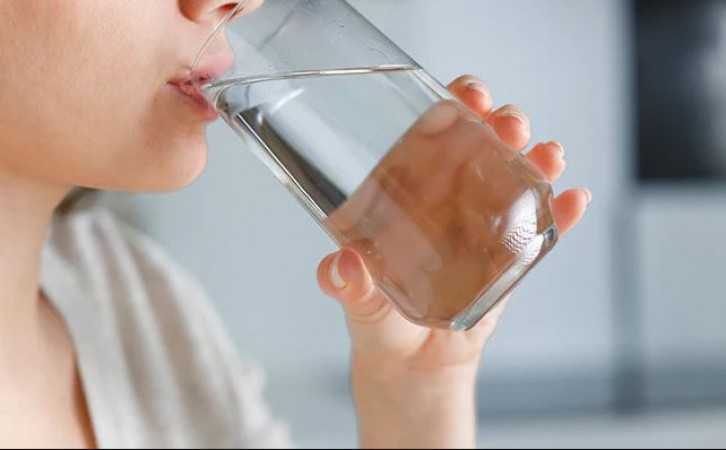
Staying hydrated is essential for good health, but as with many things, too much of a good thing can be harmful. While we're often reminded of the benefits of drinking water daily, it's important to be aware of the signs that indicate you might be overdoing it. Overhydration, or water intoxication, can lead to serious health complications if left unchecked.
Understanding the Risks
Water is vital for our bodies to function properly. It helps regulate body temperature, aids in digestion, transports nutrients, and flushes out toxins. However, when you consume more water than your body needs, it can upset the delicate balance of electrolytes and lead to a condition known as hyponatremia, or low sodium levels in the blood.
Recognizing the Signs
It's crucial to pay attention to your body's signals to determine if you're drinking an appropriate amount of water or if you're overhydrating. Here are some signs that you might be consuming too much water:
1. Urine Color:
Urine color serves as a reliable indicator of hydration levels in the body. Normally, urine is pale yellow in color, which indicates that the body is adequately hydrated. This coloration is the result of a pigment called urochrome, which is produced when the body breaks down hemoglobin from old red blood cells.
When a person drinks excess water, the urine becomes more diluted, causing it to appear clear or almost colorless. On the other hand, if someone is dehydrated, their urine will be darker in color due to the increased concentration of waste products and a reduced volume of water.
Monitoring urine color can help individuals gauge their hydration status and adjust their water intake accordingly. However, it's essential to note that factors such as diet, medications, and certain medical conditions can also influence urine color, so it should not be the sole determinant of hydration levels.
2. Frequent Urination:
Frequent urination occurs when the body produces more urine than usual, leading to increased trips to the bathroom throughout the day. While occasional episodes of frequent urination may be normal, persistent and excessive urination can be a sign of overhydration or an underlying medical condition.
When a person consumes too much water, the kidneys work overtime to filter and excrete the excess fluid from the body. This process results in an increased volume of urine production, prompting more frequent urination.
Several factors can contribute to frequent urination, including excessive fluid intake, certain medications (such as diuretics), urinary tract infections, diabetes, and kidney disorders. Therefore, individuals experiencing persistent or bothersome symptoms of frequent urination should consult a healthcare professional for proper evaluation and management.
3. Nausea:
Nausea is a common symptom that can occur for various reasons, including overhydration. When the body takes in an excessive amount of water, it disrupts the balance of electrolytes, particularly sodium, in the bloodstream.
Hyponatremia, or low sodium levels in the blood, can develop as a result of overhydration. Sodium plays a crucial role in regulating fluid balance and nerve function in the body. When sodium levels drop too low, it can lead to nausea, vomiting, headache, confusion, muscle cramps, and seizures.
Nausea associated with overhydration may occur as a result of electrolyte imbalances and fluid shifts within the body. It's important to address nausea promptly and seek medical attention if it persists or is accompanied by other concerning symptoms.
4. Swelling and Pain in Extremities:
Excessive water intake can lead to swelling and discomfort in the hands, feet, and other extremities. This swelling, known as edema, occurs when fluid accumulates in the body's tissues, causing them to become swollen, tender, and puffy.
One of the primary mechanisms underlying edema associated with overhydration is the dilution of sodium levels in the body. Sodium helps regulate fluid balance by drawing water into or out of cells as needed. When sodium levels become too low, as is the case with hyponatremia, fluid may shift from the bloodstream into the surrounding tissues, leading to edema.
In addition to swelling, individuals may experience pain, discomfort, and a sensation of heaviness in the affected areas. In severe cases, edema can interfere with mobility and impair circulation, increasing the risk of complications such as skin ulcers and infections.
Preventing Overhydration
To avoid the risks associated with overhydration, it's essential to drink water in moderation and listen to your body's cues. While the recommended daily intake of water varies depending on factors such as age, weight, and activity level, a general guideline is to aim for about 8 glasses of water per day.
It's also important to consider your individual needs and adjust your water intake accordingly. If you're engaging in strenuous physical activity or spending time in hot weather, you may need to increase your fluid intake to stay hydrated. However, be mindful not to overdo it.
In summary, while staying hydrated is essential for overall health, it's equally important to maintain a balance and avoid overhydration. By being mindful of the signs and symptoms of excessive water intake, individuals can take proactive steps to optimize their hydration levels and prevent associated health risks. Monitoring urine color, paying attention to frequency of urination, addressing nausea, and managing swelling in extremities are important aspects of maintaining proper fluid balance and promoting overall well-being.
PM Modi's Mega Visit to Jammu tomorrow: These Developmental Projects in Focus
Weight loss: These 3 drinks prove to be very effective in reducing weight